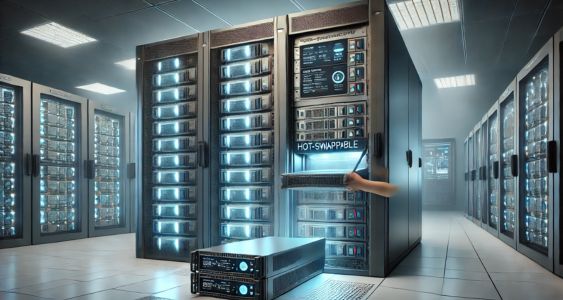When everything depends on your servers staying online—literally everything—you can’t afford a weak link in your power setup. Downtime is more than an inconvenience; it’s lost productivity, missed opportunities, and damage to trust. That’s where uninterruptible power supplies (UPS) come in. But not just any UPS; modular UPS systems are fast becoming the gold standard for engineering uptime and server reliability.
Why Server Uptime Isn’t Just About Power
Before we get into the UPS side of things, it’s worth taking a step back. Server uptime depends on a few core pillars:
- Clean, consistent power – No spikes, no dips, and no interruptions.
- Redundancy – One failure shouldn’t take everything down.
- Scalability – Your infrastructure needs to grow without constant overhauls.
- Speed of recovery – If something fails, how fast can it be fixed?
A standard UPS system can give you backup power. But a modular UPS goes further, supporting every one of those pillars in a much more flexible and resilient way.
What Is a Modular UPS?
A modular UPS is just what it sounds like: a power protection system made up of individual modules, each with its own power and control components, that can be slotted into a central frame or chassis.
You can think of it as building blocks. Need more capacity? Add a module. Want redundancy? Add another. Need to swap one out? Do it without powering down the whole system. It’s this plug-and-play approach that makes modular UPS solutions for server rooms ideal for modern environments.
The Uptime Advantage: Why Modular Wins

Built-in Redundancy Without Overkill
Traditional UPS systems often require oversizing to build in redundancy. That means paying for more power than you need, just in case. With modular UPS, you can configure N+1 or N+X redundancy far more efficiently.
So if you need 80kW of power, and each module provides 20kW, installing five modules gets you there. Adding a sixth module gives you N+1 redundancy. Simple, cost-effective, and most importantly, no downtime if one module fails.
Hot-Swappable = Zero Interruption
This one’s huge. With a modular setup, faulty modules can be swapped while the system is running. There’s no need to take the whole UPS offline or interrupt power to your servers. That’s a serious advantage when uptime is critical.
Easy Scalability, On Your Terms
Server loads grow. That’s a given. But planning for growth with a traditional UPS often means buying a system much bigger than you need from day one. That’s wasteful and costly.
A modular UPS lets you start small and scale up. Add modules as your power demands increase, without replacing the entire system. This approach not only saves money upfront but also helps avoid unnecessary energy waste from underloaded systems.
Real-World Scenarios Where Modular UPS Shines
You’ll find modular UPS systems in data centres, healthcare facilities, and enterprise environments where every second of uptime counts. But even smaller operations are starting to see the value.
Some common scenarios include:
- Rapidly growing businesses where server capacity increases year on year
- High-density server environments where space and power usage need to be optimised
- Remote or hard-to-access sites where downtime for maintenance isn’t realistic
In all of these cases, the ability to scale, swap, and stay online is a massive benefit.
Key Design Considerations
Not all modular UPS systems are created equal. When planning your setup, here are a few points to keep in mind:
- True modularity – Look for systems where power, control, and bypass functions are all modular. Some “modular” systems still rely on fixed components that can limit flexibility.
- Efficiency levels – High-efficiency systems (especially at partial loads) save energy and reduce heat.
- Monitoring and diagnostics – A smart interface with real-time data helps identify issues before they become problems.
- Service access – Make sure maintenance doesn’t require major disassembly or downtime.
When Is Modular UPS Not the Right Fit?
Let’s be honest—not every setup needs a modular UPS. If you’re running a single small server or don’t expect any growth, a traditional UPS might do just fine.
Modular systems come at a higher initial cost, and they shine most when flexibility, uptime, and scalability are priorities. So, it’s worth evaluating based on your actual needs and projected growth.
Power Protection That Grows With You
Server reliability isn’t something you achieve once and forget about. It’s an ongoing process, and your infrastructure should support that mindset.
Modular UPS systems give you flexibility, control, and peace of mind. They make it easier to respond to failures, scale as you grow, and build redundancy that’s smart, not expensive.
If uptime matters—and let’s face it, it always does—modular might just be the most sensible power investment you can make.
See Also: From Concept to Reality: How Mockups Bring Brand Designs to Life










